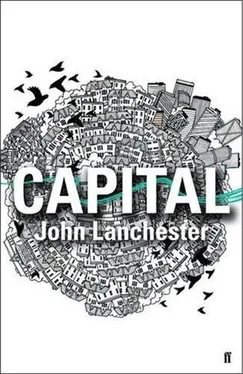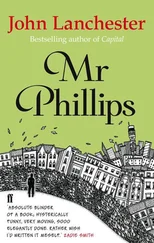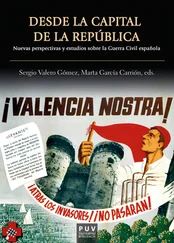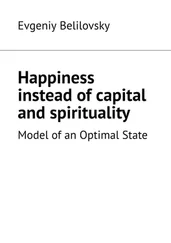They pulled into Chelmsford station. Outside there was a car park and a café. A solitary taxi was waiting at the rank. The cab driver had his eyes closed with a newspaper folded over his stomach. Matya pointed at the café.
‘I’ll wait for you there. If it looks like you’re going to be more than an hour or so, call me,’ she said. Then she leaned over, kissed him, and set off across the car park.
The cab driver gave a jolt when Zbigniew opened the door, then shook himself awake. The trip to Mrs Howe’s house took ten minutes, past houses which to Zbigniew’s eyes all looked very similar, bungalows and near-bungalows. He had thought it would be more like a village but this was just a different sort of town. Zbigniew took the cabbie’s mobile number and paid him – five pounds, much cheaper than London. As he got out of the taxi he moved to shut the door, then realised, just as he was about to slam it closed, that he’d left the suitcase on the back seat. That would have been a very good way for the story to end.
Mary had been trying to keep herself busy since Zbigniew’s strange phone call. She was at the kitchen sink, washing up some pots which were in theory clean but which hadn’t been used for a bit, when she saw Zbigniew step out of the taxi and start walking up the drive.
Since her mother’s death, Mary had not been miserable all the time, but she had been flat. That was the word for it – flat. Of course she knew that what had happened was in one major way a relief: her mother had been set free of her suffering. Some people died lingeringly, horribly, for a period stretching into years. Petunia had suffered, and it had been too slow, but it wasn’t the worst of all deaths, and Mary was glad of that. And there was one kind of good news in her death – or what would have been good news if it could be considered in the abstract. The house had been valued at £1.5 million and the estate agent was bullish about the figure. Mary would never have to worry about money again. Indeed, if she didn’t want to, she’d never even have to think about it again. Alan’s garages did nicely and they were already well-off – exactly how well-off, she didn’t know, because it wasn’t the kind of question she liked to ask.
That was, for Mary, the trouble. The equation was too plain and too depressing. In the debit column, she had lost her mother; in the credit column, she now had a gigantic pile of cash. It felt as if her remaining parent had been taken away and in return she’d been given lots of money. Nothing else about her life had changed. Alan was still solid and dependable and, in his solid dependable way, a little distracted. Ben was still behind his wall of preoccupations, either in his bedroom doing God-only-knew-what on the internet or out doing God-only-knew-what with his friends; it wasn’t at all obvious to Mary which she liked less. The great positive addition to her life was her dog Rufus, a Yorkshire Terrier who was now three months old, and who was friendly, good-natured, not very bright, and the only living thing who seemed excited at the idea of being in Mary’s company. Now, as Zbigniew came up to the door, Rufus first ran to it, then back to Mary to check that she was aware of what was going on – come quick, developments! – and then back to the front door to yap at the prospective intruder. Keeping Rufus in position with her foot – which wasn’t hard, since the dog was mainly showing off his keenness – Mary opened the door.
The Polish builder was carrying a battered old brown suitcase. As he usually did, he shook Mary’s hand very formally. ‘I am grateful to you for agreeing to see me with so little warning,’ said Zbigniew.
‘Come in,’ said Mary. The roof has fallen in. One of my co-workers has been killed in an accident. I stayed the week at my girlfriend’s house and squatters have taken over your property. I have forged your signature on legal documents and 42 Pepys Road is now mine. The house has burned down in a fire and I wanted to tell you in person. Over the months working at your mother’s old house I have come to know you and love you as a person: please run away with me. But the builder’s manner did not correspond with any of those propositions. He looked preoccupied, but he did not look like the bearer of catastrophic news.
‘Tea?’ said Mary, gesturing towards the sitting room.
‘Is there a possibility of coffee?’
‘Coffee,’ said Mary. She went out and bustled in the kitchen while he waited in the sitting room. When she came back he was still standing by the window, looking at the largely featureless driveway, still holding the suitcase. Mary poured the coffee, sat down, and gestured for him to sit too. Then she waited.
‘Mrs Leatherby,’ said Zbigniew. ‘This is not easy to explain. It is better if I simply show you.’ He turned the suitcase to face her and opened it. Zbigniew watched her face.
‘Five hundred thousand pounds,’ he said.
Afterwards, Mary always remembered how quickly she had realised what had happened. It was not a process that took time. She just simply and immediately knew. It helped that she recognised the suitcase. Yes, that was it, it all flowed from the suitcase. Dad, cash, suitcase, hiding place, sudden death, builder finds it, not sure what to do, fesses up. She got it straight away. It was obvious what had happened – he’d found the money and had then had no idea what to do with it. Mary knew what that felt like.
It had been interesting to hear about the secret compartment. Her father had of course been handy, in his miserish way. He had no enjoyment of DIY but his passion for saving money was so keen he did it anyway. So he had evidently built himself this hideaway. It would have been in character for him to plan a big revelation, almost certainly as a way of winning an argument. No doubt his fantasy went something like this: Petunia would say something about the need for security in old age, some money to supplement the pension which would be not all that generous during his life and would be less so after his death. She would say something about his needing to make more provision, he would goad her by talking about how you couldn’t trust anyone in the financial services industry, how they were all thieves, she would grow upset, he would then produce the suitcase and make his big revelation: see how I have provided for you. I may be cranky, but I’m not stupid. He would show her the money, the savings he had squirrelled away in cash, under the bed or somewhere, over years and years. And Petunia would be tearful and forgiving and apologetic and furious, all at once. That was the effect her father had had. Except that it hadn’t happened like that. It was lucky he hadn’t lived to see what happened after his death. He’d have been furious.
After the Pole went, Mary just sat there. It was a nice day, getting dark around five, and Alan made full use of it, coming home from the golf course only after nightfall. He had found Mary sitting downstairs with all the lights off, so much in the dark that she’d given him a shock, a hell of a shock, when he saw her.
‘Crikey,’ he said. ‘What’s up?’
‘Good game?’ asked Mary.
‘Not bad. Got a bit stuck afterwards, he was droning on about his bloody in-laws again. It’s amazing the way he can repeat himself word for word and not think you’re going to mind. But don’t change the subject. What’s up?’
‘Sit down,’ said Mary. Then she opened the suitcase.
‘Christ on a bike,’ said Alan.
‘Half a million,’ said Mary. ‘My dad. Case in a secret compartment. The Pole found it.’
‘But-’ said Alan. Then he stopped. It was funny for Mary to see him at such a complete loss for words.
‘I know,’ she said. ‘They’re old tenners. Worthless. He hoarded it for so long it turned into waste paper.’
Читать дальше












